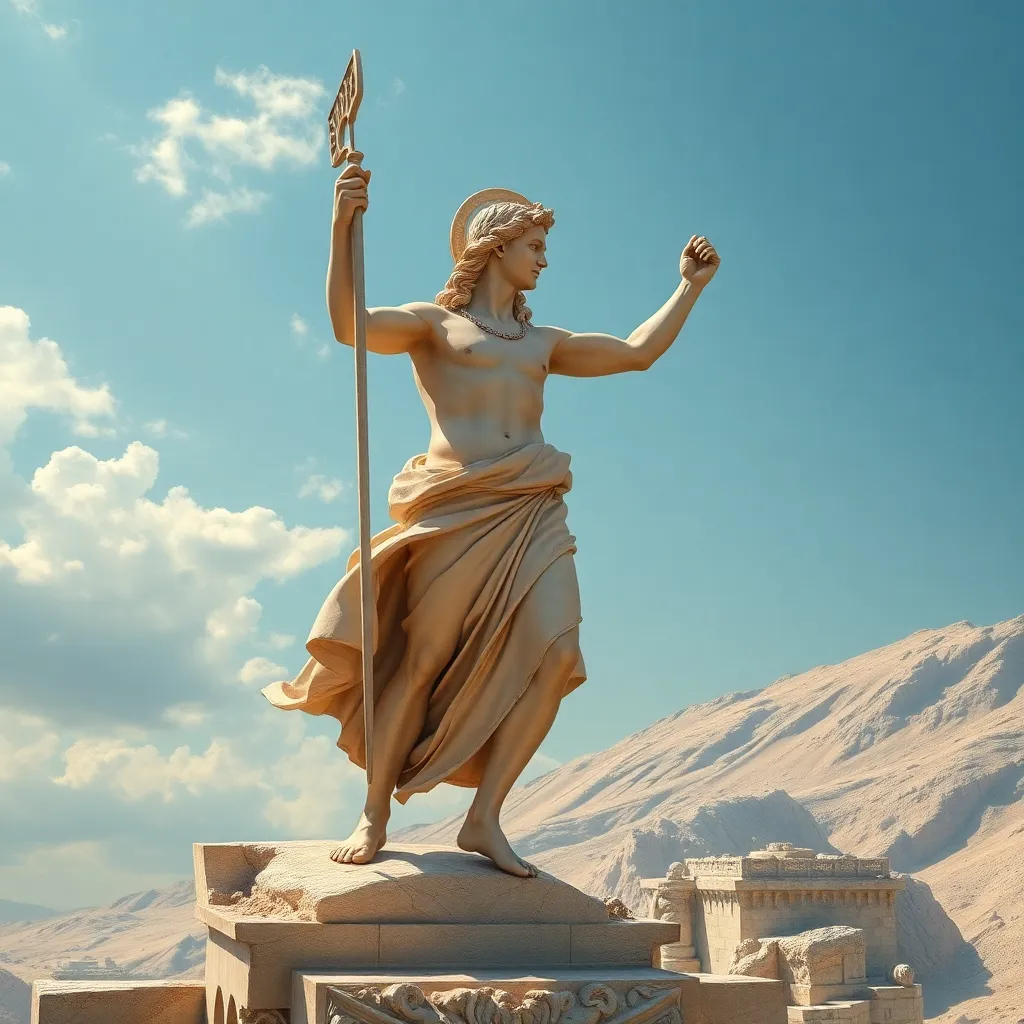Apollo’s Influence on Ancient Greek Culture: Art, Music, and Philosophy
I. Introduction
Apollo, one of the most venerated deities of ancient Greece, embodies a myriad of attributes and domains. As the god of the sun, music, art, knowledge, and prophecy, he played a crucial role in shaping the cultural and spiritual landscape of Greek civilization. Apollo’s significance is not merely confined to mythology; he is a central figure that influenced art, music, philosophy, and various aspects of daily life in ancient Greece. This article explores the multifaceted influence of Apollo on ancient Greek culture, delving into his attributes, iconography, and the lasting legacy he left behind.
II. Apollo: The God of Many Aspects
Apollo’s attributes extend across various domains, making him a complex and multifaceted deity. He is often associated with the following:
- God of the sun and light
- God of music and poetry
- God of prophecy and knowledge
- God of healing and medicine
- God of archery and the protector of youth
His relationship with other Greek gods further enhances his significance. He is the son of Zeus and Leto and the twin brother of Artemis, the goddess of the hunt. Apollo’s interactions with deities such as Hermes, Dionysus, and Athena illustrate his integral role within the pantheon.
Symbolism and iconography associated with Apollo often include the lyre, laurel wreath, and the sun. These symbols reflect his diverse attributes and the profound impact he had on both the physical and spiritual realms.
III. Apollo in Ancient Greek Art
Apollo’s influence is vividly evident in ancient Greek art, where he is frequently depicted in various forms. His representations in sculpture and painting showcase his beauty and divine qualities. Noteworthy aspects include:
- Sculpture: Statues of Apollo, such as the Apollo Belvedere, exemplify the idealized human form and beauty that the Greeks aspired to.
- Painting: Vases and frescoes often illustrate mythological scenes involving Apollo, highlighting his role in various myths, such as his pursuit of Daphne or his victory over the Python.
The architectural designs inspired by Apollo are also significant, particularly the temples dedicated to him, such as the Temple of Apollo at Delphi. These structures were not only religious sites but also centers for cultural and artistic expression.
Case studies of famous artworks featuring Apollo demonstrate his pervasive influence. For example, the “Apollo and Daphne” sculpture by Gian Lorenzo Bernini captures the moment of transformation and the interplay of beauty and tragedy that characterizes many Apollo myths.
IV. The Role of Apollo in Music
Apollo’s identity as the god of music is of paramount importance in ancient Greece. Music was integral to both religious practices and daily life, and Apollo was revered as its divine patron. His connection to the lyre, a stringed musical instrument, symbolizes harmony and artistic expression.
The influence of Apollo on musical competitions and festivals is particularly noteworthy. The Pythian Games, held in his honor at Delphi, featured musical contests that celebrated his contributions to the arts. These games emphasized the importance of music and performance in Greek culture and provided a platform for emerging talent.
V. Apollo’s Contributions to Philosophy
Apollo is also associated with knowledge and enlightenment, making him a pivotal figure in the philosophical discourse of ancient Greece. The Delphic Oracle, dedicated to Apollo, served as a critical institution where individuals sought guidance and wisdom. The famous inscription “Know thyself” reflects the philosophical inquiries encouraged by Apollo’s wisdom.
Prominent philosophers such as Socrates and Plato were influenced by Apollo’s ideals. Their explorations of ethics, knowledge, and the nature of existence echo the values associated with the god. Apollo’s emphasis on rational thought and moral clarity inspired a legacy of philosophical inquiry that shaped Western thought.
VI. Apollo and Cultural Practices
Festivals and rituals dedicated to Apollo were essential aspects of ancient Greek culture. One of the most significant events was the Pythian Games, which celebrated Apollo’s victory over the Python and included athletic competitions, music, and poetry. These gatherings fostered community spirit and cultural pride.
The integration of Apollo’s influence in daily life is evident in civic identity. Many city-states established cults and temples in his honor, reinforcing his role as a protector and guide for the community.
VII. Legacy of Apollo in Later Cultures
The influence of Apollo extended beyond ancient Greece, significantly impacting Roman culture. The Romans adopted Apollo, emphasizing his attributes of healing and prophecy. Temples dedicated to Apollo were built throughout the Roman Empire, and his worship continued to thrive.
Modern interpretations of Apollo can be seen in literature, art, and popular culture. His ideals of beauty, truth, and harmony resonate in contemporary society, inspiring artists, musicians, and thinkers. Apollo’s legacy persists as a symbol of enlightenment and artistic expression, reflecting the timeless human pursuit of knowledge and beauty.
VIII. Conclusion
In summary, Apollo’s multifaceted influence on ancient Greek culture is profound and far-reaching. From his representation in art and music to his contributions to philosophy and cultural practices, Apollo embodies the ideals that shaped Greek civilization. His legacy continues to inspire and resonate, emphasizing the importance of studying Apollo’s role in understanding the complexities of ancient Greek life and thought.
As we reflect on Apollo’s impact, it becomes clear that his ideals of beauty, knowledge, and harmony remain relevant today, serving as guiding principles in our ongoing pursuit of wisdom and artistic expression. The study of Apollo not only enriches our understanding of ancient Greece but also offers insights into the enduring nature of human culture.




